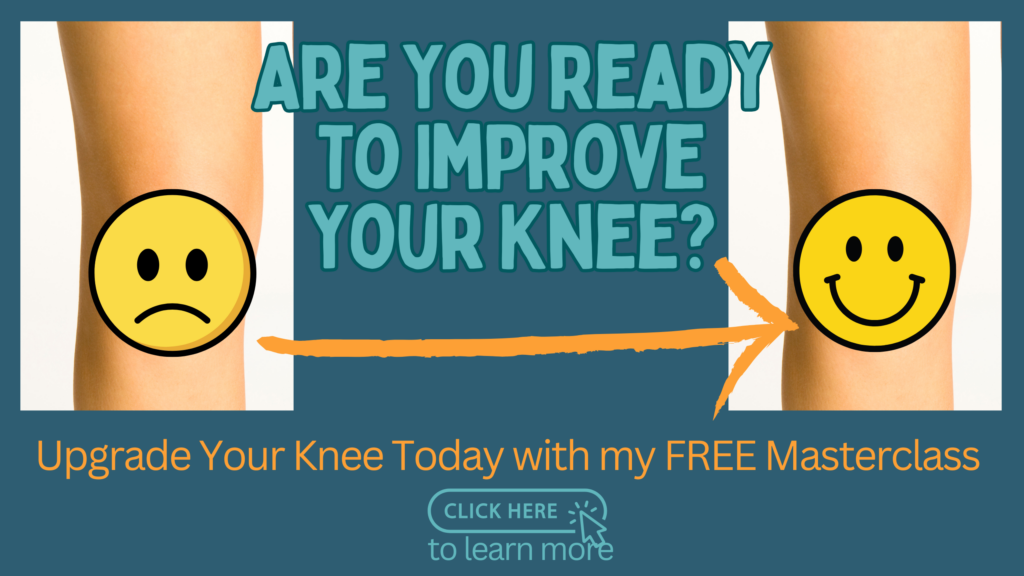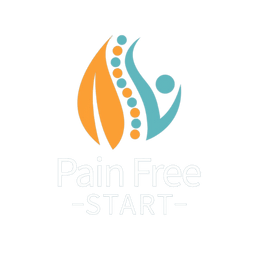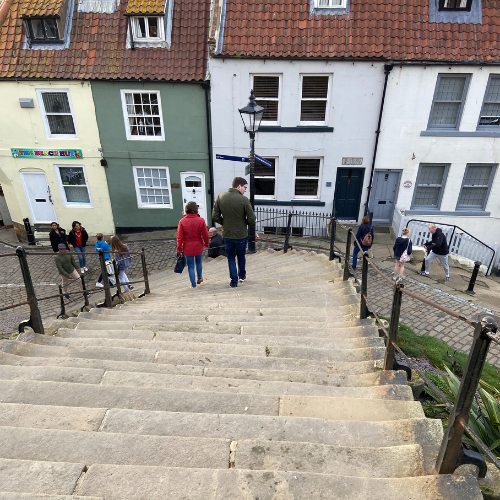Does Climbing Stairs Help or Harm Arthritic Knees?
For many of my patients, climbing stairs is a dreaded challenge. But should you push through the discomfort to strengthen your knees, or is it best to avoid stairs altogether? The answer isn’t straightforward. In this blog, we’ll explore the pros and cons of stair climbing with arthritic knees and share tips to make it easier.
Pros of Climbing Stairs for Arthritic Knees
Strengthens Leg Muscles – Stairs engage the quadriceps, hamstrings, and glutes, helping support the knee joint and reducing strain.
Improves Joint Flexibility – The movement involved in stair climbing can improve knee flexibility and range of motion.
Low-Impact Exercise – Compared to high-impact activities, stair climbing is relatively gentle on the joints when done correctly.
Convenient – If you have stairs at home or work, they can be an easy way to build strength as part of your daily routine.

Cons of Climbing Stairs for Arthritic Knees
Increased Load on Knees – Stairs require significant strength and control, especially when descending. Poor knee function can lead to pain and irritation.
Risk of Falls – If balance and strength are lacking, stairs can increase fall risk, leading to further injury.
Potential for Overuse & Flare-Ups – Repeated stair climbing can worsen knee inflammation, especially if the knee is already painful.
Should You Climb Stairs with Arthritic Knees?
If your knee is inflamed and weak, avoiding or modifying stairs can help prevent further irritation and reduce fall risk. However, once pain is under control and strength improves, climbing stairs can become a beneficial way to maintain knee function.
How to Make Climbing Stairs Easier with Arthritis
Strengthen Your Knees First – A structured program like my Arthritic Knee Program helps settle pain before gradually improving strength and function. Most participants see improvements in stair climbing within two weeks.
Modify How You Use Stairs – Try leading with your good leg going up and bad leg coming down for better control.
Use Support – A handrail, walking stick, or crutch can help offload pressure on your knees.
Watch My Video Guide – Learn the best stair-climbing techniques for arthritic knees [watch here].
This blog 9 Essential Tips for Climbing Stairs with Arthritic Knees will provide further help.
Pam’s Story – Conquering Stairs at 89
Pam, at 89.5 years young, struggled with stairs, relying heavily on her arms and placing both feet on each step. She dreaded using them.
After just two weeks on my Arthritic Knee Program, she noticed a big difference—stairs became easier and less painful.
After three months, Pam was climbing normally, stepping up one foot at a time without pulling herself up. She hadn’t done that in over five years!
Pam’s journey is proof that, with the right guidance, you can regain confidence and strength—at any age.
Final Thoughts
While stair climbing can strengthen the legs, it often causes pain for those with arthritic knees. Initially, avoiding or modifying stairs can prevent irritation, while following a structured strengthening program will help you regain function.
Like Pam, you can take control of your knee health and move with confidence again. Ready to start? Check out my Arthritic Knee Program today!
Take care, Helen
Helen Manders BSc (Hons) MCSP HCPC
Chartered Physiotherapist Treating Arthritic Knees Since 2001




